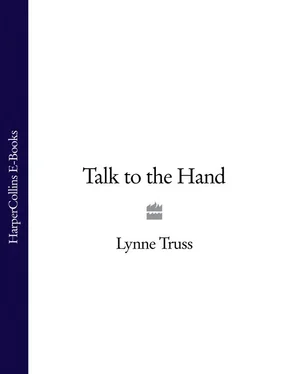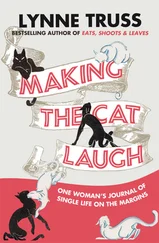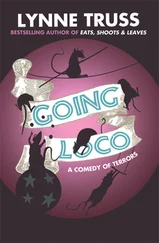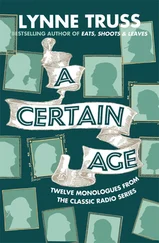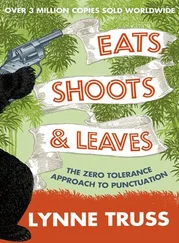Why is this not a handbook to good manners? Why will you not find rules about wielding knives and forks, using a mobile phone, and sending thank-you notes? I have several reasons for thinking that the era of the manners book has simply passed. First, what would be the authority of such a book, exactly? Why would anyone pay attention to it? This is an age of lazy moral relativism combined with aggressive social insolence, in which many people have been trained to distrust and reject all categorical answers, and even (I’ve noticed with alarm) to dispute points of actual law without having the shadow of a leg to stand on. However, this is not to say that manners are off the agenda in today’s rude world. Far from it. In fact, what is so interesting about our charming Eff-Off society is that perceived rudeness probably irritates rough, insolent people even more than it peeves polite, deferential ones. As the American writer Mark Caldwell points out in A Short History of Rudeness (1999), if you want to observe statusobsessed people who are exquisitely sensitive to slights, don’t read an Edith Wharton novel, visit San Quentin. Rudeness is a universal flashpoint. My main concern in writing this book is to work out why, all of a sudden, this is the case.
Another argument against laying down rules of etiquette is that we no longer equate posh behaviour with good behaviour, which is a splendid development, posh people being notoriously cruel to wildlife and apt to chuck bread rolls at each other when excited. Who wants to behave like a posh person? I know I don’t. I recently met a very posh person, the husband of (let’s say) a theatrical producer, and when I asked if he was himself in (let’s say) theatrical producing, he just said, “Oh God, no”, and refused to elaborate. Is this good manners? Well, the best you can say about it is that it’s very English, which is not the same. As the anthropologist Kate Fox points out in her fascinating Watching the English (2004), it is a point of honour in English society to effect all social introductions very, very badly. “One must appear self-conscious, ill-at-ease, stiff, awkward, and above all, embarrassed,” she writes. The handshake should be a confusion of half-gestures, apologies, and so on. And as for cheek-kissing, it is an established rule that someone will always have to say, “Oh, are we doing two ?” Also essential in the introductory process, she says, is that on no account should you volunteer your own name or ask a direct question to establish the identity of the person you are speaking to.
I must admit that this last rule explained quite a lot to me. My standard behaviour at parties is to announce straight away who I am, and then work quite strenuously to ascertain the name and profession of the person I’m speaking to – mainly because I wish to avoid that familiar heart-stopping moment at the end of the evening when the host says, “So what did you make of my old friend the Archbishop of Canterbury, then? Looks good in mufti, doesn’t he? You seemed to be telling him off-colour jokes for hours. ” However, it turns out that asking direct questions is socially naff, while the “Oh God, no” response is the one that is actually demanded by the compensatory instincts of good breeding. No wonder I have so often ended up playing Twenty Questions with chaps who seem to pride themselves on being Mister Clam the Mystery Man.
“So. Here we are at Tate Modern,” I say. “I’m afraid I didn’t catch your name. I expect you are front-page famous which will make this an embarrassing story to tell all my clued-up friends.”
“Oh no.”
“No?”
“Well, I’m known to a select few, I suppose. Mainly abroad. Nineteen.”
“Pardon?”
“You’ve got nineteen questions left. You’ve just used one.”
“Oh. Oh, I see. All right. Are you in the arts?”
“No, no. Nothing like that. Eighteen.”
“Are you animal, vegetable, or mineral, ha ha?”
“Mm. Like everybody, I believe, I’m mainly water. Seventeen.”
“I see. Well. Look. Are you the Archbishop of Canterbury?”
“No. Although there have been some notable clerics in the female line. Sixteen.”
“Do your bizarre trousers hold any clue to your profession?”
“How very original of you to draw attention to my bizarre trousers. Fifteen.”
“Do you own a famous stately home in the north of England?”
“Um, why do you ask?”
“Just a wild stab.”
“Well, I like your style, but no. Fourteen.”
“I give up. Who are you?”
“Not allowed. Thirteen.”
“All right. I was trying to avoid this. If I got someone strong to pin your arms back, where would I find your wallet?”
It’s always been this way, apparently, in so-called polite society. People go out and meet other people, but only so that they can come home again without anyone piercing the veil of their anonymity in the period in between. George Mikes made a related point in his wonderful How to be an Alien (1946): “The aim of introduction [in England] is to conceal a person’s identity. It is very important that you should not pronounce anybody’s name in a way that the other party may be able to catch it.”
Until recently, of course, people did aspire to posh manners. Hence the immense popularity, in the nineteenth and twentieth centuries, in both Britain and America, of books that satisfied middle-class anxieties and aspirations – and incidentally fuelled snobbery. Books such as Letitia Baldridge’s Complete Guide to the New Manners for the ‘90s (referring to the 1890s) or the umpteen editions since 1922 of Emily Post’s Etiquette : The Blue Book of Social Usage existed because they were needed: as society became more fluid, people found themselves in unfamiliar situations, where there was a danger that they would embarrass themselves by punching the hotel porter for stealing their suitcase, or swigging from a fingerbowl, or using the wrong fork to scratch their noses. Cue the loud, general gasp of well-bred horror. Well, sod all that, quite frankly, and good riddance. Oldfashioned manners books have an implicit message: “People better than you know how to behave. Just follow these rules and with a bit of good luck your true origins may pass undetected.” It is no accident that the word “etiquette” derives from the same source as “ticket”. It is no accident, either, that adherence to “manners” has broken down just as money and celebrity have largely replaced birth as the measure of social status.
All of which leaves the etiquette book looking a bit daft. “Wait until the credits are rolling before standing up to leave,” I see in one recent guide to polite behaviour. “Don’t text when you’re with other people,” says another. “A thank-you letter is not obligatory, although one can be sent to the Lord Steward of the Royal Household.” I experience a great impatient hohum in the face of such advice. Once you leave behind such class concerns as how to balance the peas on the back of a fork, all the important rules surely boil down to one: remember you are with other people; show some consideration. A whole book telling you to do that would be a bit repetitive. However, I do recommend Debrett’s for its incidental Gosford Park delights. There is, for example, a good, dark little story in the most recent edition about a well-bred country gentleman with suicidal intent who felt it wasn’t right to shoot himself before entering his own name in the Game Book. You have to admire such dedication to form. For anyone wishing to follow his example, by the way, he listed himself under “Various”.
Manners never were enforceable, in any case. Indeed, for many philosophers, this is regarded as their chief value: that they are voluntary. In 1912, the jurist John Fletcher Moulton claimed in a landmark speech that the greatness of a nation resided not in its obedience to laws, but in its abiding by conventions that were not obligatory. “Obedience to the unenforceable” was the phrase that was picked up by other writers – and it leads us to the most important aspect of manners: their philosophical elusiveness. Is there a clear moral dimension to manners? Can you equate civility and virtue? My own answer would be yes, despite all the famous counter-examples of blood-stained dictators who had exquisite table manners and never used their mobile phone in a crowded train compartment to order mass executions. It seems to me that, just as the loss of punctuation signalled the vast and under-acknowledged problem of illiteracy, so the collapse of manners stands for a vast and under-acknowledged problem of social immorality. Manners are based on an ideal of empathy, of imagining the impact of one’s own actions on others. They involve doing something for the sake of other people that is not obligatory and attracts no reward. In the current climate of unrestrained solipsistic and aggressive self-interest, you can equate good manners not only with virtue but with positive heroism.
Читать дальше
